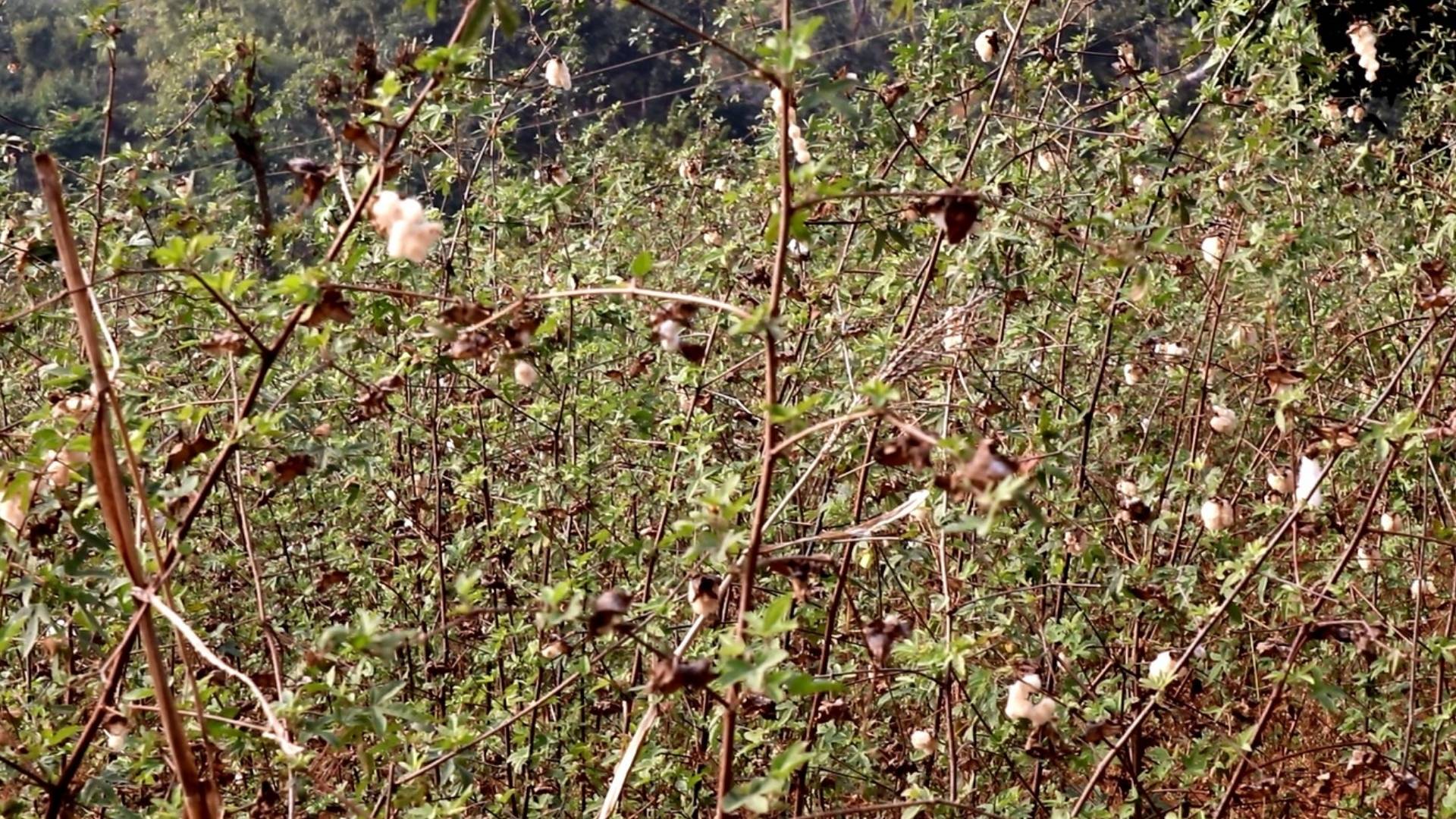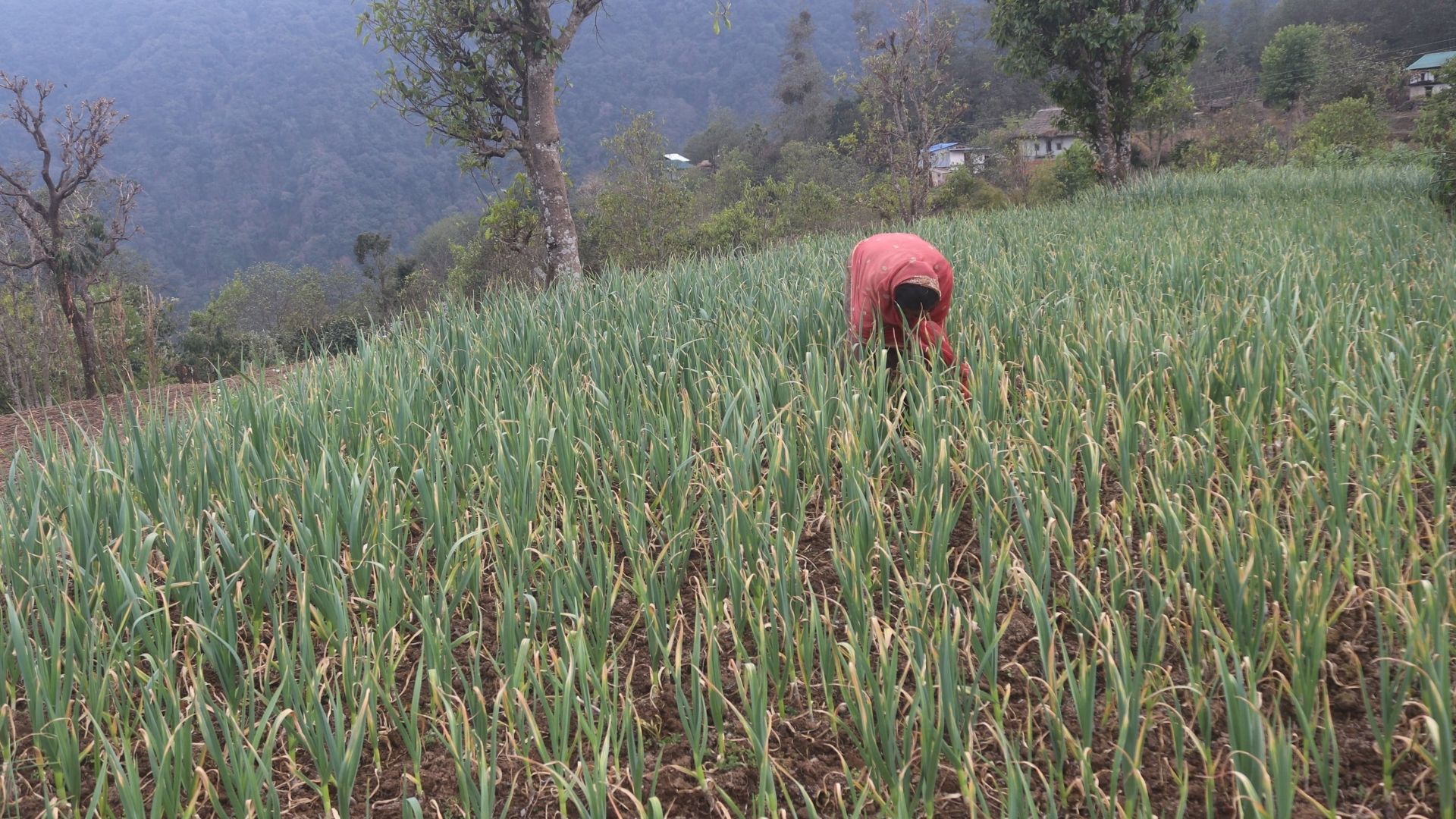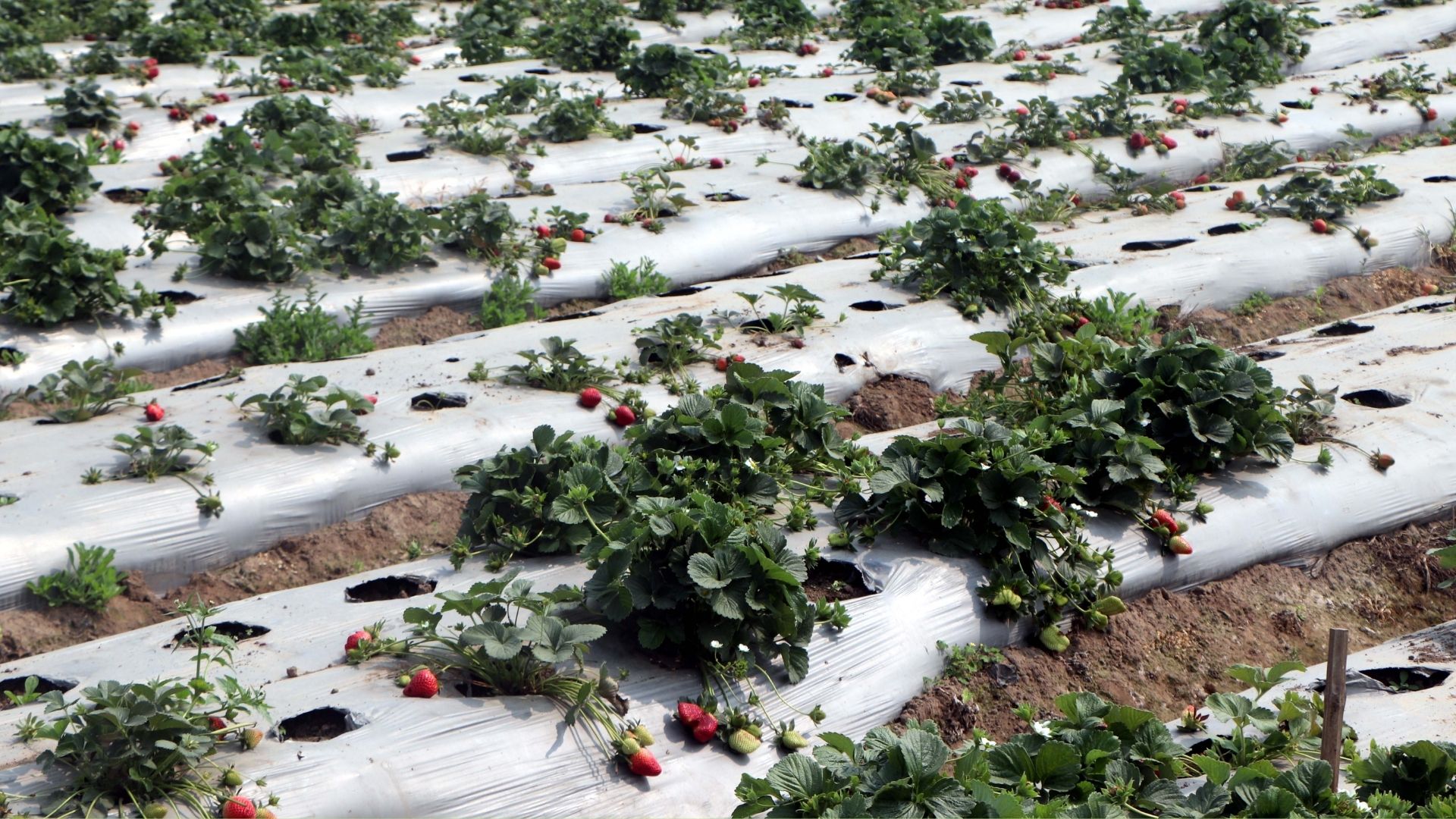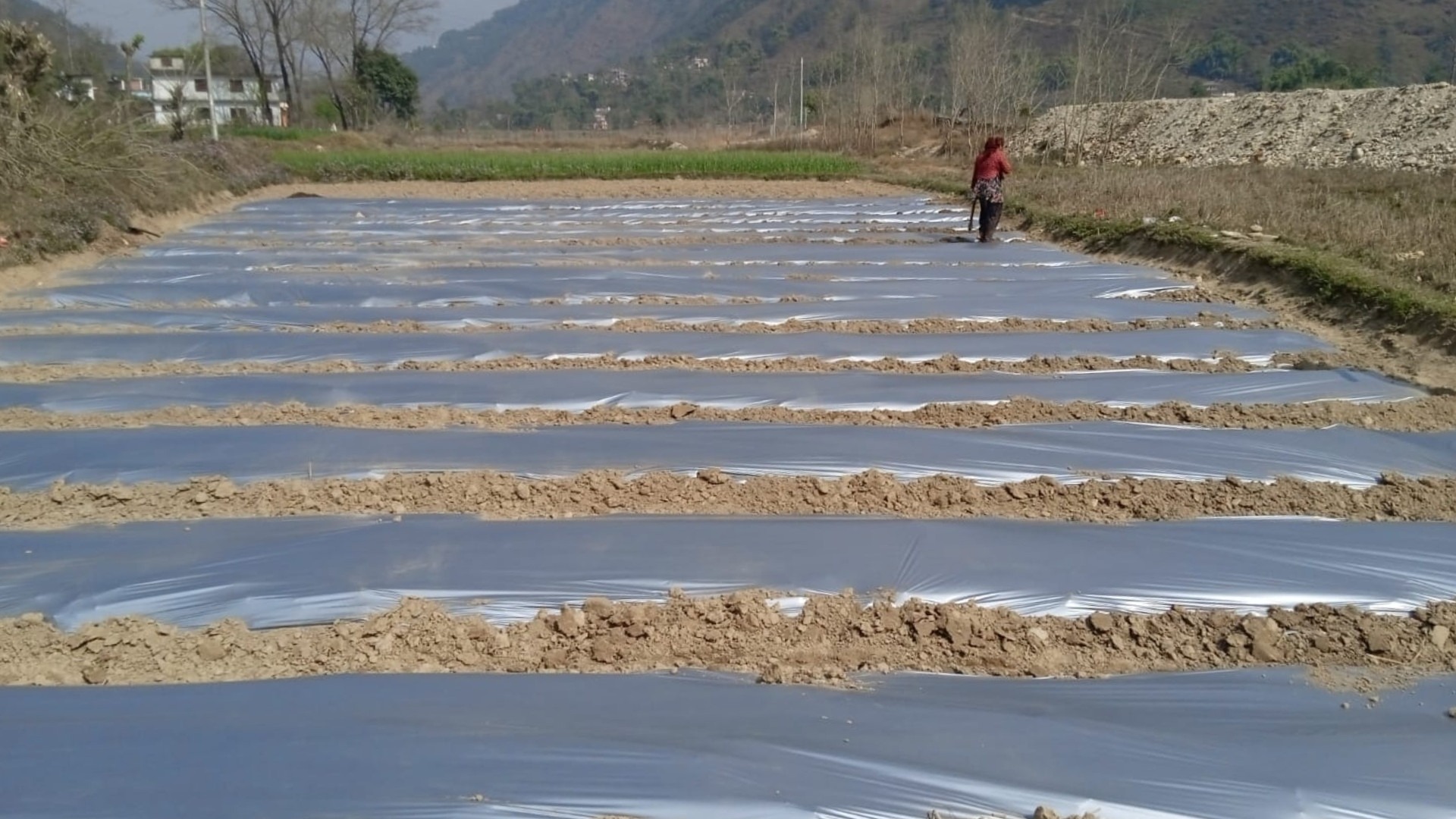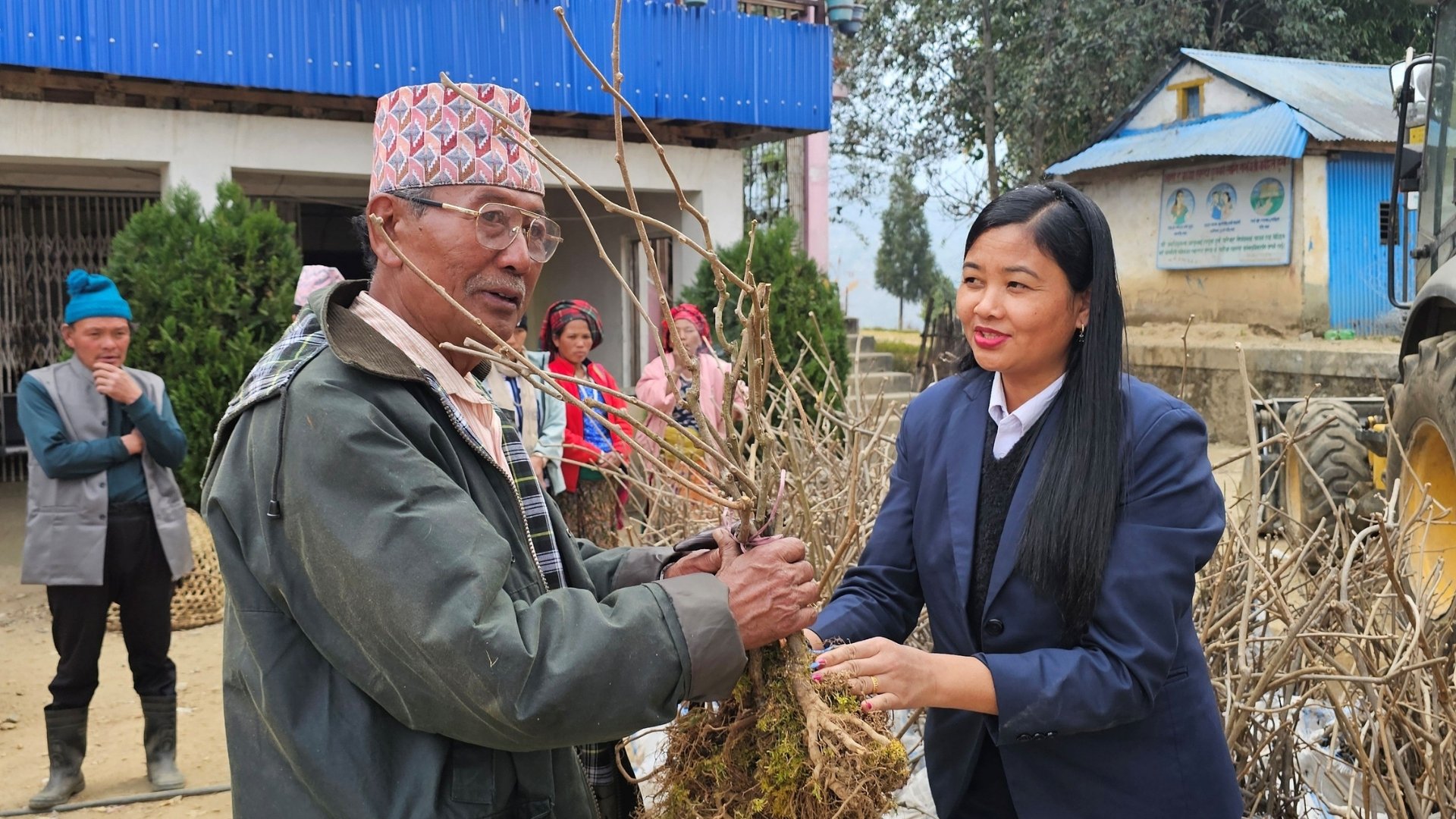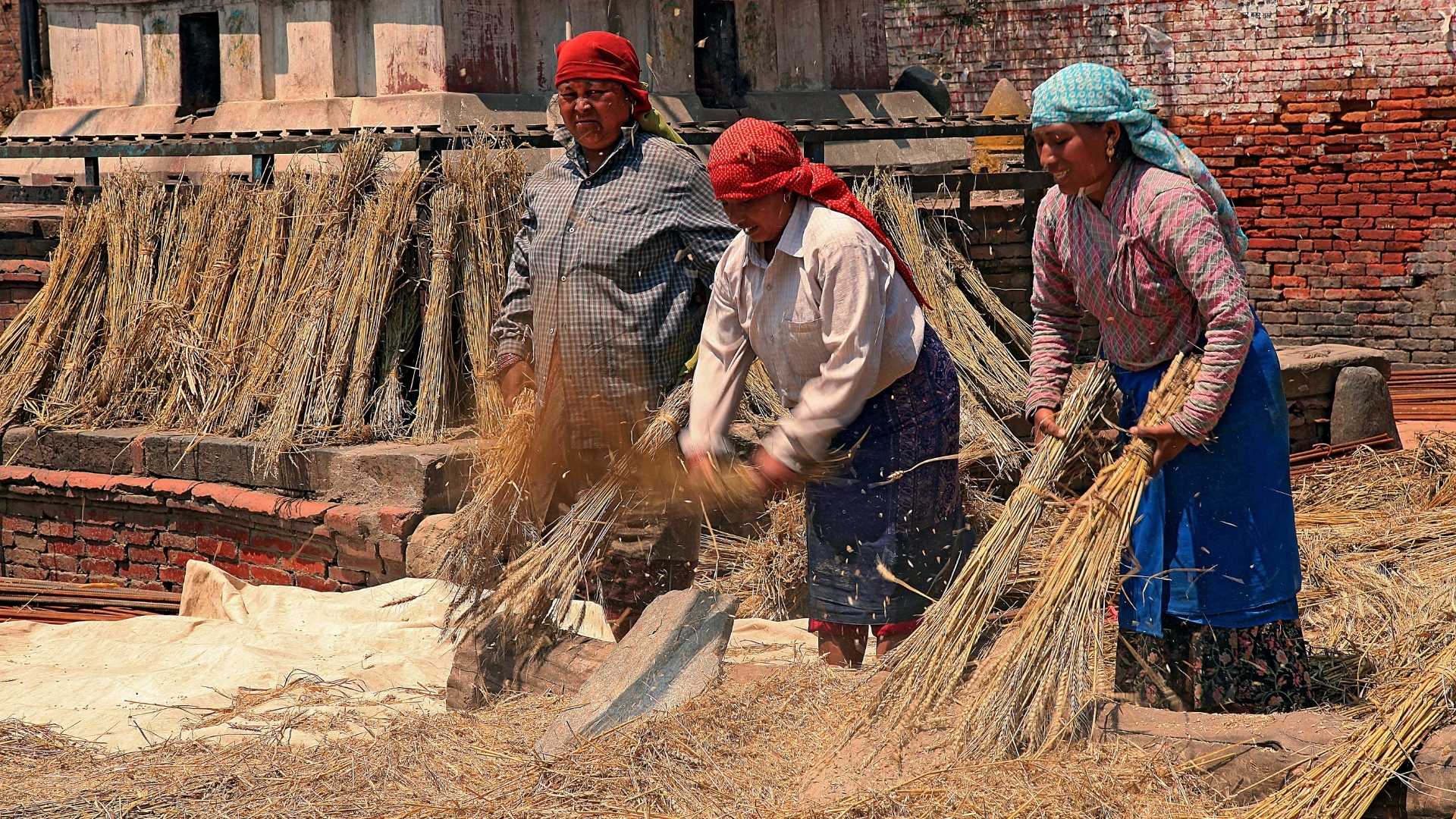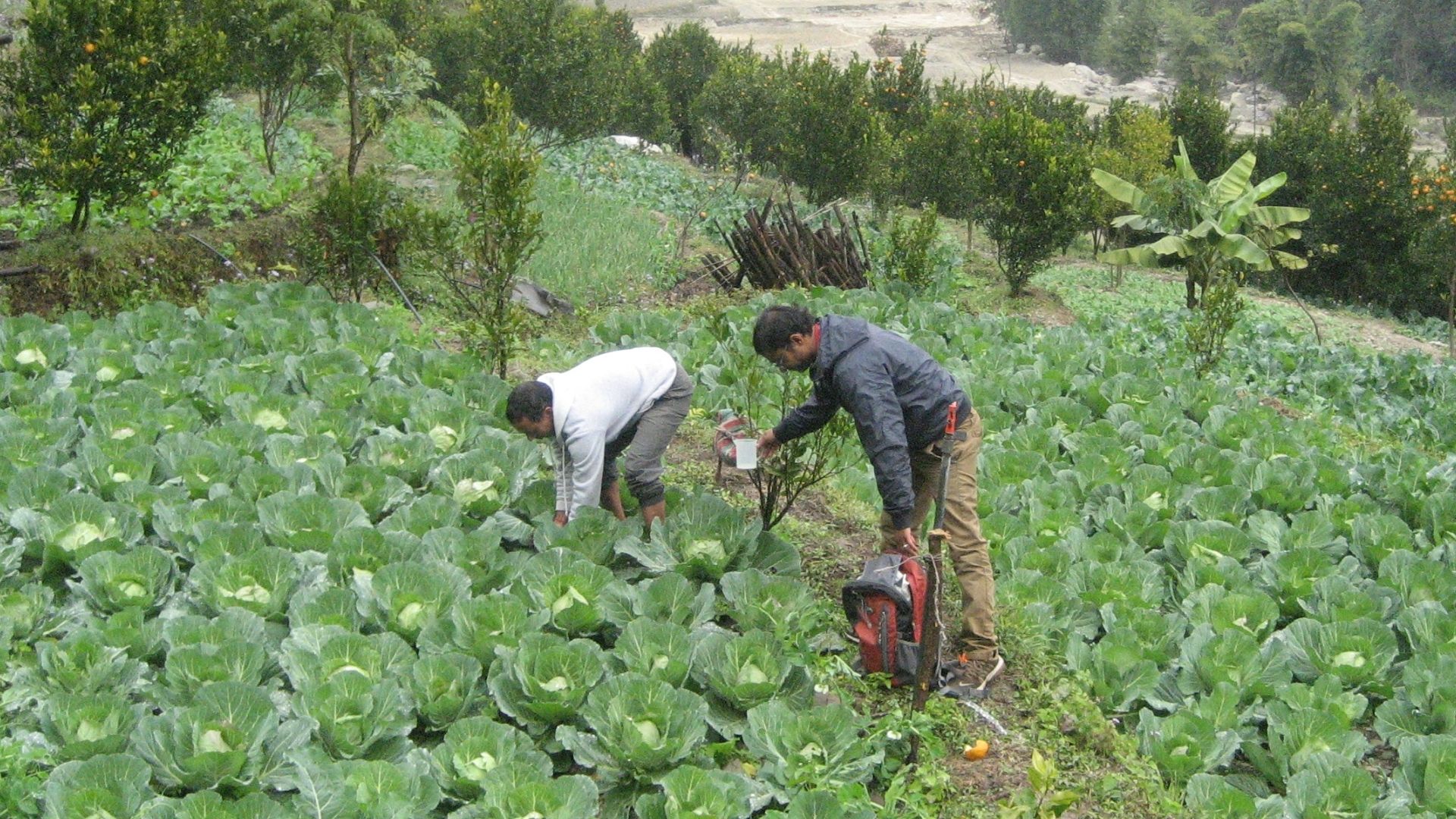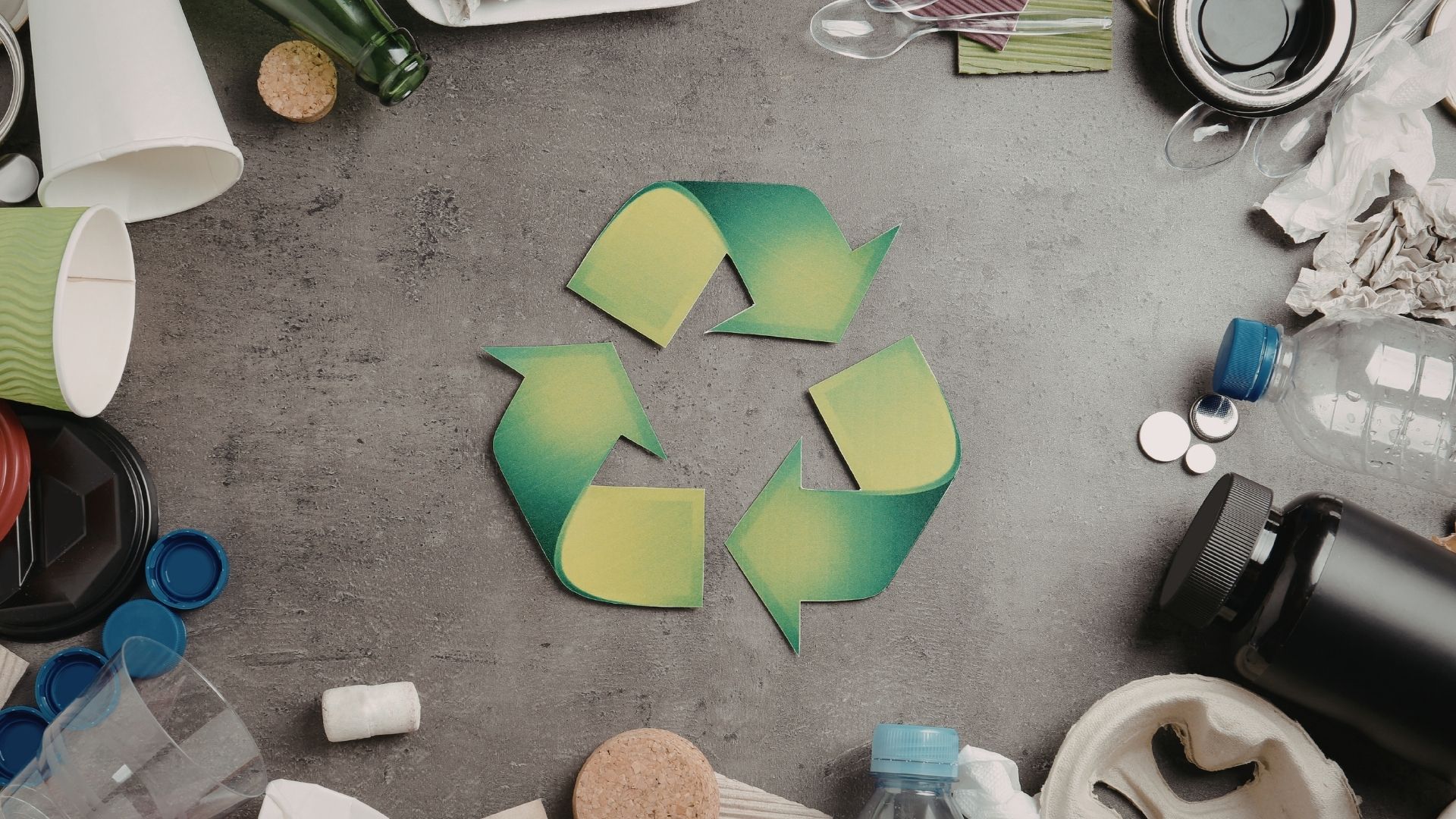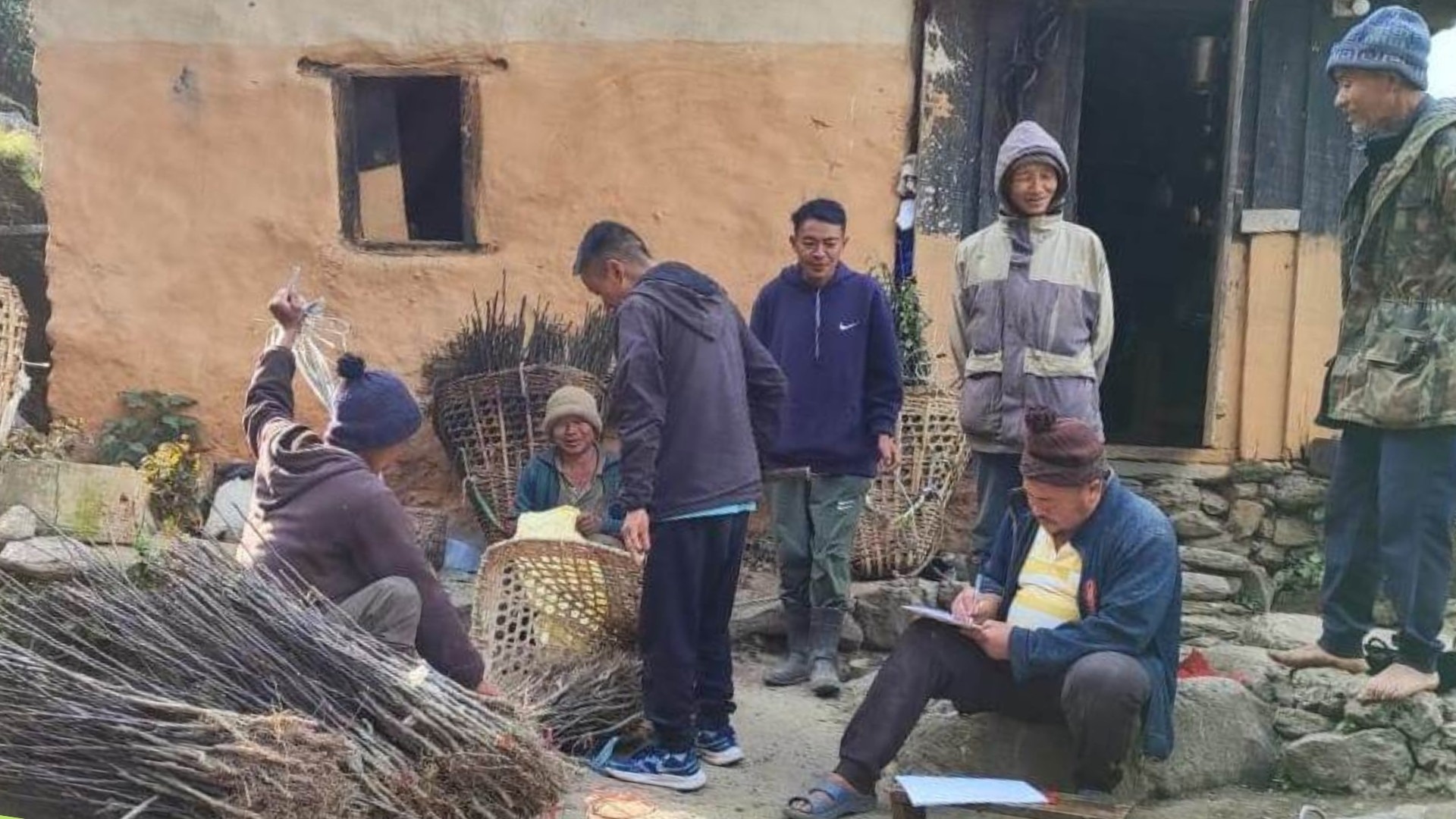Arun Rural Municipality in Bhojpur has begun the conservation and promotion of traditional Kogati (cotton) farming. The municipality has initiated efforts to preserve this disappearing traditional practice and develop it into a commercial enterprise.
Since yarn spun from cotton can be used to weave hand-made cloth, the products made from it fetch high market prices. According to Dev Kumar Rai, a local farmer engaged in Kogati cultivation, a single piece of cloth made from Kogati sells for between NPR 25,000 and NPR 35,000. He is currently cultivating Kogati on 20 ropani of land. He stated that brown cloth produced from Kogati is particularly valuable and that he earned NPR 350,000 from this cultivation just last year.
Two types of yarn—brown and white—are produced from Kogati. Using a loom, this yarn is turned into garments and items such as daura–suruwal, coats, caps, bags, and handkerchiefs. There is a high market demand for these products, said Darja Kumar Rai, chairperson of the Simtar Farmers’ Group. He added that 19 farmers collectively cultivate Kogati on 25 ropani of land.
To preserve and expand Kogati farming, the rural municipality has been providing improved seed varieties, agricultural tools and equipment, and training on hand-weaving Kogati yarn into cloth, according to Chairperson Shalikram Khatri. With a budget of NPR 3 million provided by the Federal Government’s Cottage and Small Industries Office, a cotton-processing machine, traditional looms and spinning wheels, training programs, and maintenance of the industry building have been carried out.
This year, a Kogati farming promotion program worth NPR 2.5 million will be implemented in partnership between the rural municipality and the provincial government. According to Ward No. 6 Chairperson Ganesh Takkar Rai, Kogati is extensively cultivated in Jarayotaar’s Simtar, Jogitar, Vaireni, Bastang, Baseri, and Chomtang areas. Around 25–30 households in these areas are engaged in commercial farming of Kogati.


